Despite the increasing market share of new energy vehicles led by pure electric vehicles globally, recent signs show a slowdown in the expansion plans of electric vehicles by many European and American car companies, including Ford, General Motors, Volkswagen, and Tesla. Even Japanese car company Toyota, despite emphasizing increased investment in electric vehicles, has been very slow to take action.
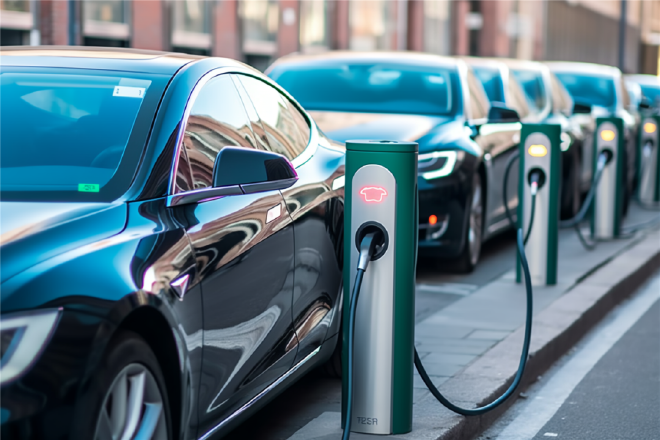
So why are multinational car companies who were previously shouting “stop producing fuel cars, all in new energy” suddenly backing off, no longer ambitious in electrification goals? Perhaps all of this has to do with the challenges of slowing market demand, intense price competition, and lower-than-expected profits. This is the fundamental reason for car companies to shift from their previous aggressive expansion to a more cautious attitude. Many multinational car companies are delaying their layout. Recently, Tesla, General Motors, and Ford have slowed down their expansion of electric car factories, citing reasons such as increased financing costs, slowing economic growth, and weakening car demand.
Tesla’s Musk emphasized that electric car sales are expected to slow down due to rising interest rates. According to reports, in the third quarter of 2023, Ford announced a delay of approximately $12 billion in new electric car and battery production expansion investment, including the suspension of the construction of a second battery factory in Kentucky, USA, in collaboration with South Korean manufacturer SK On. Ford said that consumers in the North American market are more cautious and are unwilling to pay higher prices for electric cars than for internal combustion or hybrid cars, putting pressure on the pricing and profitability of electric car companies.
In addition, despite rapid growth in the number of electric vehicles in the entire automotive industry, the growth rate has not met Ford’s expectations. Ford executives emphasize that the company will not cut spending on future electric vehicle models, but the speed of increasing electric vehicle manufacturing capacity and related investments will be slower than previous plans. As early as July of this year, Ford has postponed the target of producing 600,000 electric vehicles annually from 2023 to 2024. General Motors, which plans to delay the opening of a second electric truck factory in Michigan, will delay the expansion of electric truck production capacity until the end of 2025 in order to retain more capital as electric vehicle sales growth slows.
General Motors’ delayed expansion measures have raised doubts about its previously announced electric vehicle targets. It is reported that General Motors had set a target to produce a total of 400,000 electric vehicles in North America from 2022 to mid-2024. General Motors and Honda have been forced to abandon their plan to develop and sell inexpensive electric cars priced below $30,000. Both companies cited lower-than-expected market demand, rising material costs, and constantly changing market conditions as reasons for the decision to abandon the joint development of affordable electric cars.
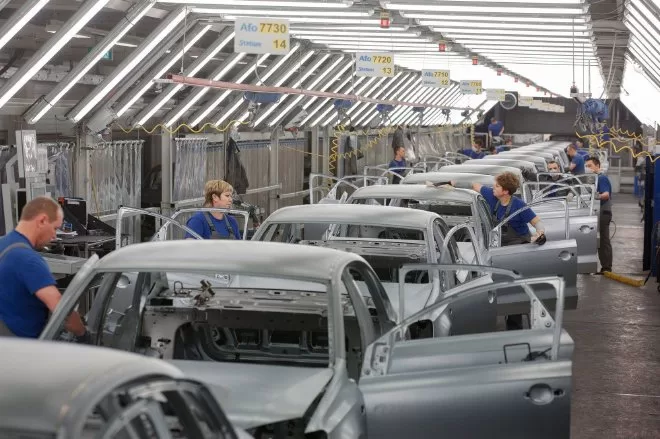
In April 2022, Honda and General Motors announced a deep collaboration. The two companies will develop a range of low-cost electric vehicle models based on the latter’s next-generation Ultium battery technology. The first models are planned to be launched in North America in 2027, with an estimated price of less than $30,000, challenging Tesla’s dominant position in the electric vehicle market in terms of sales. Besides American car companies, Japanese car company Toyota’s enthusiasm for the transformation to electric vehicles is also not high. Toyota stated that there is no single answer to reducing carbon emissions, and in addition to pure electric vehicles, it has increased investment in other areas.
Therefore, Toyota’s electrification transformation is not just a single path of pure electric vehicles, but it uses the accumulation and innovation of Toyota’s diversified technology routes to provide diversified mobility solutions to the market and meet the different needs of consumers. In 2023, Toyota adopted multiple strategic approaches in the field of electrification. In May, Toyota established an exclusive organization called BEV Factory, dedicated to researching electric vehicles. In June, Toyota announced solid-state battery technology and multiple black technologies. In October, Toyota partnered with the Japanese energy giant ENEOS to develop solid-state batteries. It is worth noting that although Toyota is behind in the field of pure electric vehicles, betting on solid-state batteries will make Toyota lead in continuous sales growth.
This may be Toyota’s biggest confidence in questioning the development path of pure electric vehicles. Toyota stated that the company will soon be able to produce the next generation of solid-state batteries at the same speed as existing electric vehicle batteries, marking a milestone in the global commercial competition of this technology. In the process of electrification transformation, German car companies have also felt pain. Recently, Volkswagen decided not to build a new factory in Wolfsburg-Wolfsburg, Germany, and the originally planned “Trinity” car project will be transferred to the Zwickau factory in Germany. Volkswagen executives stated that due to lower-than-expected demand for electric cars in Europe, the company will not make a decision on the location of its fourth battery factory. The company had previously warned that its electric car orders in Europe had dropped from 300,000 to 150,000.
In addition, Stellantis, the parent company of Peugeot Citroen, announced that it will acquire a 20% stake in Zeekr for 1.5 billion euros, and will establish a joint venture with Zeekr with a 51% to 49% ownership ratio. This joint venture, called “Zeekr International,” will have exclusive rights to export and sell Zeekr cars to all global markets except Greater China, as well as the exclusive rights to manufacture Zeekr products locally. Facing delays in the electric car plans of its partner car companies, the battery suppliers have also lowered their performance expectations. According to foreign media reports, LG Energy, a major South Korean battery manufacturer, stated at a financial results meeting that its revenue will slow down in 2024, and the growth rate will not be as high as the previously predicted 30%.
LG Energy also indicated that the recovery of demand from European manufacturers may be delayed as Chinese car companies continue to launch cheaper electric cars in Europe. Panasonic, one of Japan’s important customers, also lowered its operating profit forecast for 2023 by 15%, as demand for Tesla electric cars in the North American market is slowing down. The slowdown in the automotive market continues due to the cold weather. The main reason for the slowdown in the electrification efforts of many multinational car companies is the slowing growth in global electric car sales, rising inventory levels, and challenging market conditions. This is also the direct reason for the shift in attitude towards electrification from aggressive to moderate by multinational car companies.
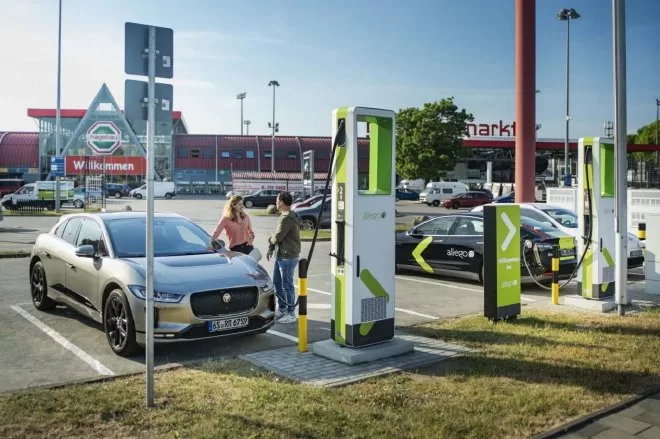
According to reports, electric car sales in the United States in the third quarter of 2023 were 313,100, an increase of 49.8% compared to the same period in 2021 and 2022, when electric car sales increased by about 75%. As of November 2023, the total sales of electric cars reached 1,008,000, an increase of 50.7% compared to the same period. At the same time, the growth rate of electric cars in the US market has slowed, and inventory levels are rising. In October 2023, the average turnover days for electric cars in the US was 57 days, almost 1.5 times what it was a year ago, which is clearly not optimistic. Overall, as of November this year, electric cars account for 7.5% of total car sales in the United States, still far from the goal of electric cars accounting for half of new car sales by 2030.
In fact, US car dealers had previously warned of a slowdown in demand for electric cars, stating that many buyers were not prepared to transition to electric cars, especially those living in vast areas who were concerned about the limited range of electric cars and their inability to reach their desired destinations. In addition, the charging locations, convenience, and range of electric cars are all issues, and the current infrastructure in the US does not meet these needs very well. Therefore, local car manufacturers are also aware of the seriousness of the problem, and some are re-evaluating their electric car strategies.
Recently, Ford announced the postponement of the construction of a battery factory and a $12 billion investment in electric vehicles, as well as a reduction in the size of another battery factory. As of November this year, Ford’s Mach E sales were slightly lower than 36,000 units, only a 3.5% increase from the same period last year. Due to continuous inventory buildup, production of this model has been reduced in the past two months. In addition to the US market, the growth rate of the European electric vehicle market is also slowing down. According to reports, the sales of electric vehicles in Europe in 2022 were 2.602 million units, only a 14.5% increase from the previous year. In September of this year, the sales of electric vehicles in Europe were 288,000 units, a 15% increase from the same period last year, but this growth rate is relatively low.
In a recent report, UBS stated that due to high interest rates in Europe and slowing economic growth, they have lowered their growth expectations for European electric vehicle sales in 2024 from the previous 25% to 15%. The report also bluntly stated: “The sales prospects for pure electric vehicles in Europe are extremely difficult.” As a result, the Volkswagen Group has decided to postpone the construction of its fourth battery factory in Europe in Eastern Europe. The Chief Financial Officer of the Volkswagen Group, Arno Antlitz, stated at the third quarter earnings conference that the company’s orders for electric vehicles in Europe have dropped from 300,000 units in the same period last year to 150,000 units, nearly halved.
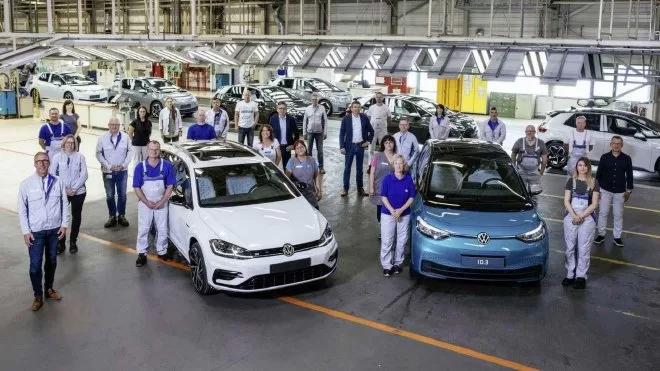
With the demand for electric cars in Europe and the United States slowing down, many car companies are inclined to offer lower-priced electric cars to stimulate the market. In addition, in order to compete for the market, German car companies have also started a large-scale price reduction wave, with discounts of about 7% for German cars that previously had no discounts. In addition, the growth of electric car sales has slowed down, and there are signs of oversupply in the market. In the third quarter, the average selling price of electric cars in the United States dropped significantly year-on-year.
The decline in market demand is seen as an important signal that the European and American electric car market may have entered the so-called “plateau period.” Of course, the slowdown in demand for electric cars in Europe is also due to the lack of a perfect charging infrastructure, which has become an important factor restricting the development of electric cars in Europe. It has been reported that nearly half of the 1,600 charging stations deployed by Repsol, Spain’s largest industrial company, are in a dormant state due to a lack of power connections, and this phenomenon is widespread throughout the European Union.
A spokesperson for the European Commission said, “The time required to connect electric car charging points to the power grid can indeed be seen as an obstacle to accelerating the popularization of electric cars, and this problem needs to be addressed urgently.” Currently, the slowdown in the growth of electric vehicle sales is due to the lack of subsidies for high-end models, the increasing price sensitivity of consumers, and the higher prices and inadequate charging infrastructure of electric vehicles compared to gasoline vehicles. Meanwhile, companies are becoming more cautious in predicting the future electric vehicle market, making strategic adjustments based on market dynamics, and delaying expansion plans until market demand becomes clear. In the context of the slowdown in the growth of electric vehicle sales, the new energy vehicle market has become fiercely competitive, and “price wars” have become the key word for the new energy vehicle market this year.
Many automakers have had to sacrifice profits to join the price war in order to grab market share. This is particularly evident in the Chinese market, where the competition is intense, and Chinese brands occupy 15 of the top 20 spots in global electric vehicle sales in the first three quarters. Therefore, in addition to the slowdown in market demand, price wars are also a constraining factor for multinational automakers to rapidly expand the electric vehicle market. According to Ford executives, consumers are unwilling to pay a premium for electric vehicles compared to traditional fuel and hybrid models, which is also hindering the growth of Ford’s electric vehicle business.

In addition, Ford’s electric car sales in the third quarter increased by 44% year-on-year, and revenue increased by 26%. However, Ford’s electric car business Model E net loss was $1.33 billion, more than double the loss in the same period last year. Analysts pointed out that Ford lost about $37,000 for every electric car sold in the third quarter, confirming that for most car companies, the saying “lose one car for every car sold” holds true. Looking at global new energy car companies, only Tesla and BYD have achieved stable profits. In addition, the Ideal car, which first turned a profit in the fourth quarter of 2022, is another exception. Other new energy car companies are currently operating at a loss. So why is it so difficult for electric car companies to make a profit?
First, the production cost of new energy vehicles is relatively high, especially in battery technology, and many car companies have invested heavily in research and development in this area. Compared to traditional fuel cars, the core technology of new energy vehicles, including batteries and motors, requires a large amount of research and development investment. The battery also has issues such as insufficient range and long charging times, leading to high manufacturing costs for new energy vehicles. However, the return on investment is not guaranteed. Many new energy electric cars introduced by car companies have not achieved breakthrough sales, failing to form a competitive advantage and making it difficult to achieve profitability through economies of scale.
Moreover, in the past two to three years, the rising cost of raw materials has also brought significant pressure to car companies. For example, the sharp increase in the price of battery raw materials has offset the profit space brought by the increase in terminal prices. Second, the new energy vehicle market is highly competitive, with various brands entering the market, leading to a fragmented market share and making it difficult to achieve economies of scale, while companies need to invest a large amount of capital in research and development and market promotion. In addition, building charging infrastructure is also a huge challenge, as the construction of charging piles requires a large amount of capital and time investment.
As a result, current new energy vehicle companies face considerable difficulty in achieving profitability. More importantly, the electric vehicle market has become a red ocean. The price war that began at the beginning of this year has made the profitability of many car companies’ electric vehicles even worse. Ford’s electric vehicle business division also suffered increased losses because it followed in the footsteps of Tesla’s price reductions. The price war has left many car companies “injured”, including Tesla, which initiated the price war. In Tesla’s third-quarter financial report conference call, the company’s gross margin fell to 17.9%, far below the 25.1% of the same period last year, reaching the lowest level in 4 years.
Net profit attributable to common shareholders plummeted by 44% to $1.853 billion. Perhaps unable to withstand the continued decline in profitability, Tesla has raised the prices of its models several times in the Chinese market in the past month, highlighting the cost and profit pressure it faces. In addition, German luxury car manufacturer Mercedes-Benz has stated that profits have been severely impacted by the “cruel” price war in the electric vehicle market. Significant price reductions and supply chain issues have caused Mercedes-Benz’s third-quarter revenue and profits to both decline. At the same time, despite the higher production costs of pure electric vehicles produced by some traditional car companies, the selling prices are lower than fuel vehicles due to competitive pressure.
It is difficult to imagine the sustainability of each car company at the moment. In addition to multinational car companies, Chinese brand car companies have also faced significant challenges in the price war. Looking at the financial reports of various new energy vehicle companies in the first three quarters of this year, with the exception of NIO, including Xpeng, Lixiang, and Zhidou, all suffered losses, and there is a trend of expanding losses. Therefore, the impact of the price war on the automotive industry is significant. After all, if car prices are greatly reduced, the profit margin per vehicle will be thinner. In order to maintain overall profits, companies must rely on higher sales volumes to balance this. If this “price for quantity” approach does not work well, car companies are likely to incur losses due to excessive price reductions.
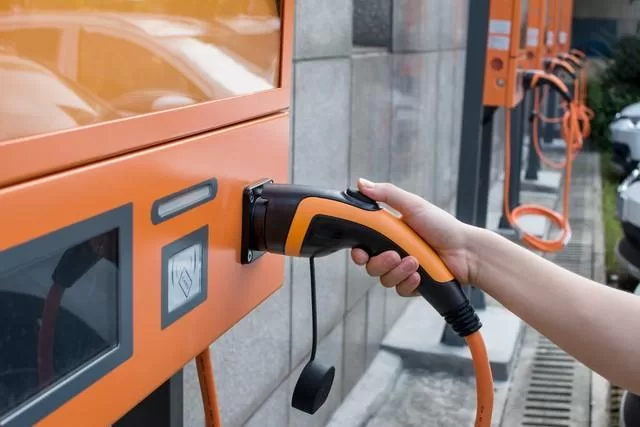
From the perspective of the product lifecycle, a car incurs significant expenses in its operational phase, in addition to research and development and manufacturing. This is especially true for new car companies that focus more on operations, so reducing prices has intensified financial burdens and increased funding gaps. This is also a problem faced by multinational car companies. In summary, there are still some challenges in the new energy vehicle market, especially in overseas markets, which has caused some multinational car companies to slow down their development of new energy vehicles. However, this has not affected the overall pace of global new energy market development. In other words, the slowdown in the electrification transformation of multinational giants does not mean giving up. In addition to independent research and development, they are also adopting a collaborative approach, such as Volkswagen with Xiaopeng, Stellantis with Lixiang, continuing the transformation in a different way.